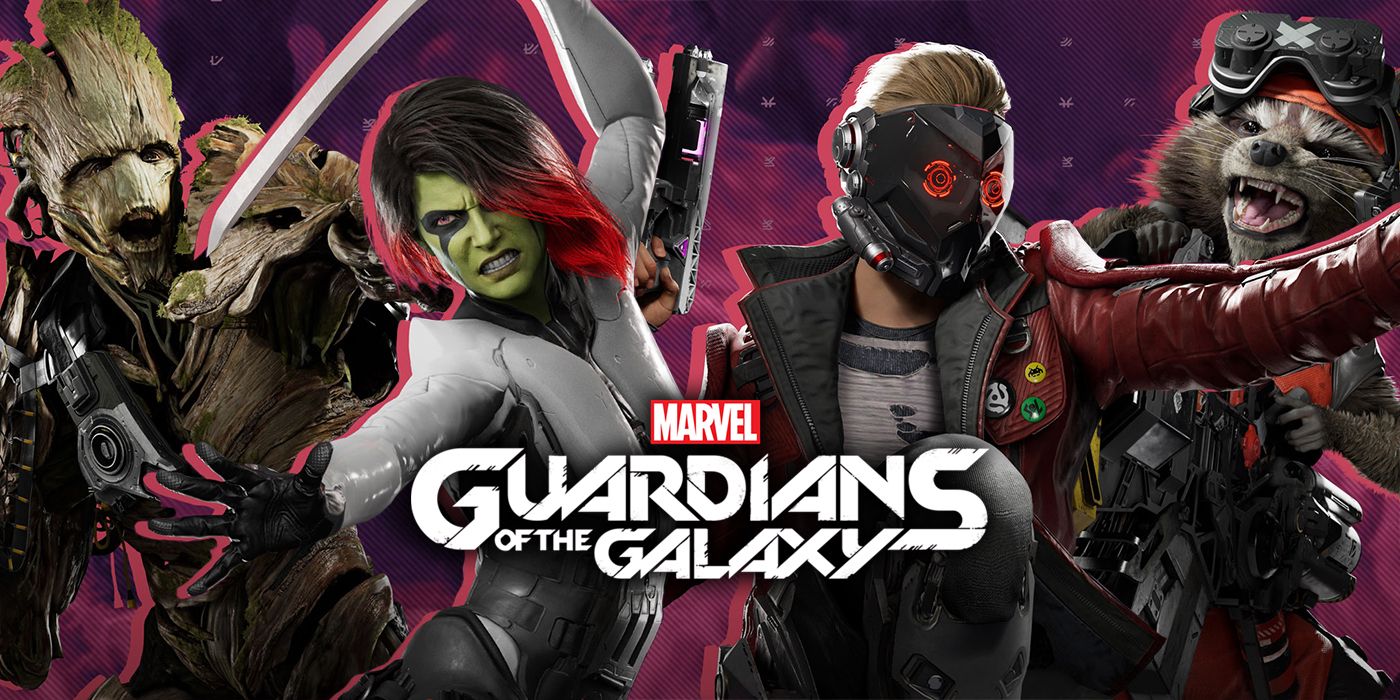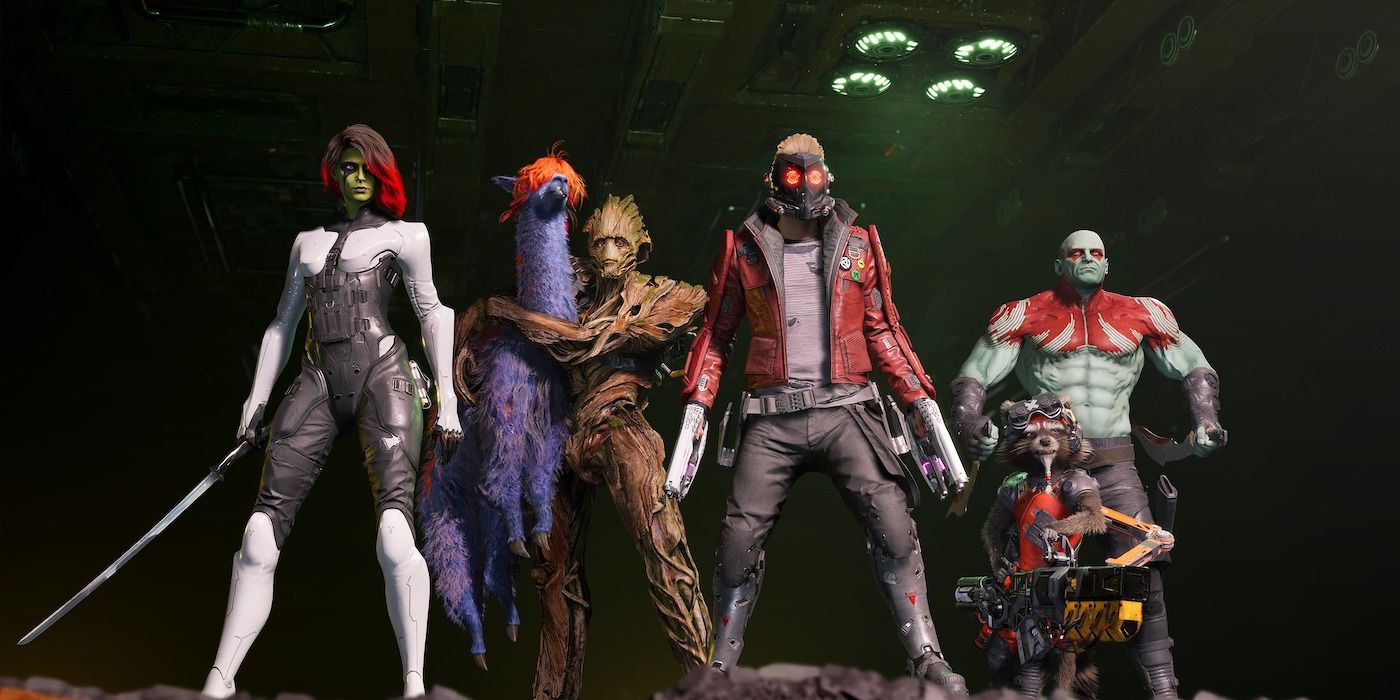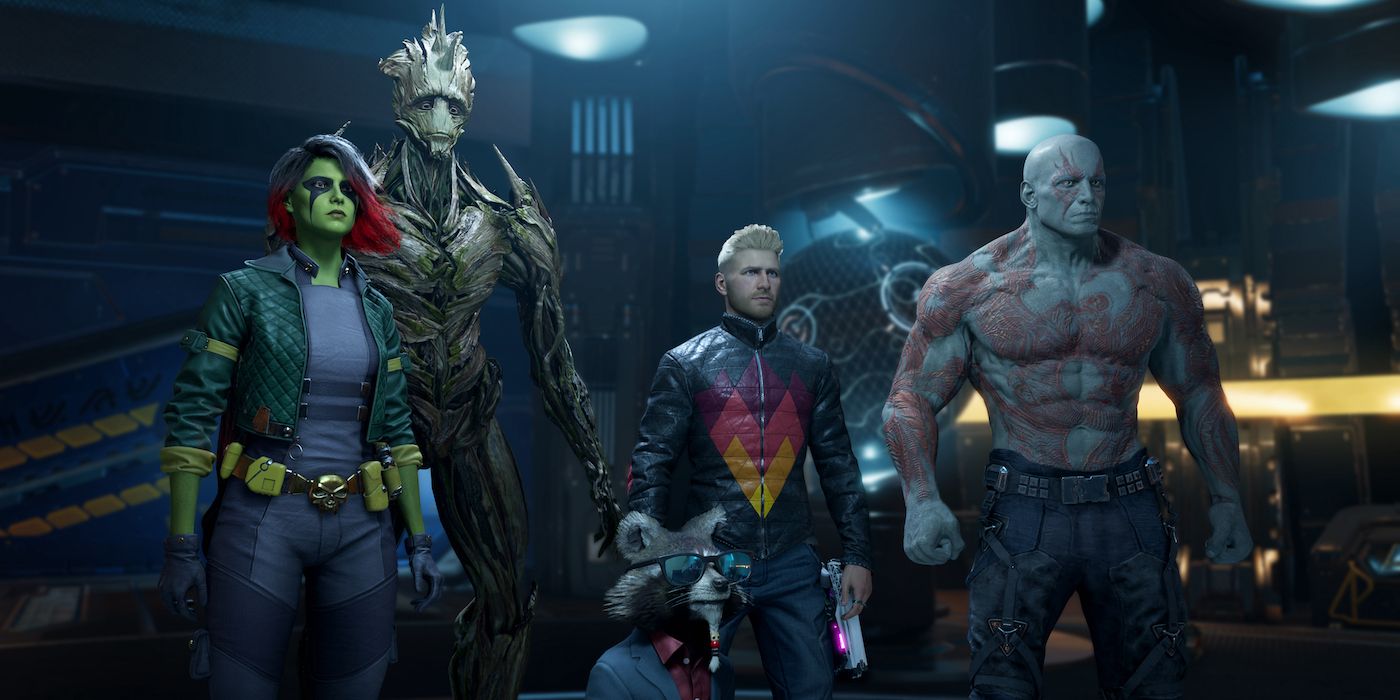Many of our big, prestigious, AAA video game titles are interested in complex, emotional explorations of the most morally ambiguous experiences of humanity; or, to put it into LEGO Batman Movie terms, DARKNESS! Recent titles like Far Cry 6, Cyberpunk 2077, and Doki Doki Literature Club plunge into emotionally gutting experiences as their raison d'être, using the inherent interactivity of gaming to eradicate any feelings of comfort or safety in the service of culpability.
I love many-to-most of these games (well, sorry Cyberpunk), and I love seeing how talented game designers and writers burrow into complicated, agonizing, brutal experiences in the service of pushing the medium as far as it can go. But all of this agony made my experience playing Marvel's Guardians of the Galaxy feel like such a breath of fresh air. While its gameplay and tone may strike you as "Uncharted in space," its overall embrace of wholesomeness, friendship, sappiness, and straight-up love ensure its pleasurable uniqueness. It's a big hug from the best big brother imaginable.
Marvel's GOTG isn't afraid of real emotions, mind you. As is the case with his MCU counterpart, Peter Quill's largest emotional hurdle comes from the death of his mother and absence of his father, and the very first scene is a playable flashback designed to scratch at this painful scab. Rocket "Don't Call Him a" Raccoon has an ever-unfolding backstory rife with pain and gritted trauma; he is, after all, sentient and skillful thanks to a vicious series of medical experiments that left most of his peers dead. Many of the characters the Guardians stumble upon during their space misadventures have history with them (especially with Peter), and while these interactions are naturally tinged with rabble-rousing humor, they also deepen with personal, oft-painful repercussions.
What separates Marvel's GOTG from the pack is what it chooses to do with these painful themes. Instead of exploring (or wallowing in) these traumas as the intention and end unto itself, the game wants you and its characters to understand how to constructively reckon with them. It doesn't topple into the saccharine, problematically suggesting that trauma is something you can "move on from"; it bubbles up to the surface for these characters too much for that to be a pat solution. Instead, it gives these characters the tools to live with their experiences constructively, threading them within the dialogue, narrative beats, and even gameplay.
The biggest tool, thank God, is love; the love of the people around you; the assertion that our experience is better (or at least more palatable) with other people to share it with. The characters often straight up say how much they mean to each other, telling each other they love them; this is especially apparent in how Rocket, that traumatized, gruff little monster, speaks with his best friend Groot. As our hero, Peter doesn't just want to be a "hero," he wants everyone to be "heroes." He's not tortured nor suffering; he's been dealt a certain hand of cards and he wants to see how he can play it properly with what his teammates (or dare I say, found family?!) are holding. Sequences of inspiring dialogue permeate the Marvel's GOTG narrative experience, encouraging me to choose the most winsome option possible for its branching dialogue options. But the idea of "using love to navigate through thorny issues" is an integral part of the combat-driven gameplay itself — if you fill a certain power meter, your Guardians all huddle up; if you choose the most encouraging piece of pep talk to give them, you get a temporary boost of invulnerability and power (scored to one of many clutch licensed tracks). You are playing the idea of camaraderie and positivity and being rewarded for it. It makes my damn heart swell.
If these wholesome gameplay elements aren't enough to convince you on Marvel's Guardians of the Galaxy's charm, consider this final, meta-textual detail. The game was developed by Eidos-Montréal, and their team has spoken about intentionally centering the character's focus on Peter, with senior narrative director Mary Demarle calling him "the heart of that team, he's the human part of that team, which we can identify with." How did Demarle and her crew most efficiently, sweetly align their creative aims with their hero? By identifying him canonically, in the very first scene, as being Canadian just like them. Now that's a choice that's as sappy as the delicious maple candies my Windsor-based relatives used to give me. More like that, please.
Marvel's Guardians of the Galaxy is available on GeForce Now, PC, PlayStation 4, PlayStation 5, Nintendo Switch, Xbox One, and Xbox Series X/S on October 26, 2021. For this piece, the game was played on PlayStation 5. Check out the official synopsis below.
Fire up a wild ride across the cosmos with a fresh take on Marvel’s Guardians of the Galaxy. In this third-person action-adventure game, you are Star-Lord, and thanks to your bold yet questionable leadership, you have persuaded an oddball crew of unlikely heroes to join you. Some jerk (surely not you) has set off a chain of catastrophic events, and only you can hold the unpredictable Guardians together long enough to fight off total interplanetary meltdown. Use Element Blasters, tag-team beat downs, jet boot-powered dropkicks, nothing’s off-limits. If you think it’s all going to plan, you’re in for a world of surprises, with the consequences of your actions guaranteed to keep the Guardians on their toes. In this original Marvel’s Guardians of the Galaxy story, you’ll cross paths with powerful new beings and unique takes on iconic characters, all caught in a struggle for the galaxy’s fate. It’s time to show the universe what you’re made of. You got this. Probably.



